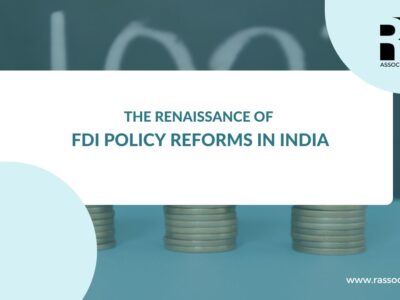
Navigating the Virtual Playground: Online Gaming in India
The Indian online gaming industry has witnessed exponential growth in recent years and it is projected to see a steep incline. As of May 10, 2023, it is forecasted that online gaming in India will continue to witness exponential growth in the coming years. According to industry experts, the industry is projected to reach a value of approximately INR 350-400 billion by 2025, driven by increasing internet penetration, the rise of smartphones, and the growing popularity of online gaming among the younger generation. This growth is expected to be further fueled by the development of new and innovative games, the expansion of gaming platforms, and the increasing adoption of virtual and augmented reality technologies in gaming. However, the legality of online gaming in India remains a complex and controversial issue due to a lack of clear regulatory guidelines. In this article, we will provide a comprehensive analysis of the legal framework governing online gaming in India, including current regulations and updates.
Regulation of Online Gaming in India
The Public Gambling Act, 1867: A Historical Foundation
The Public Gambling Act, 1867 is the foundational legislation governing gambling activities in India. Established during the British colonial era, the Act primarily aims to penalize the operation, management, and visitation of gambling houses. Some of the key provisions of the Act include:
- Section 3: This provision criminalizes the operation of a gambling house and prescribes penalties for offenders, including imprisonment and fines.
- Section 4: This section penalizes anyone found in charge of a gambling house, with the same penalties as those prescribed for the owners.
- Section 5: This provision is directed towards the visitors of a gambling house, making it an offence to knowingly visit such an establishment.
- Section 12: This section exempts games of mere skill from the purview of the Act, acknowledging the distinction between games of chance and games of skill.
However, the Public Gambling Act has several limitations when it comes to addressing the contemporary challenges of India’s online gaming industry. The most glaring limitation is that the Act predates the internet by more than a century and, as such, does not directly address online gaming or related activities. Furthermore, the Act largely focuses on physical gambling houses, and its provisions are not well-suited to tackle the nuances of virtual gaming platforms.
Applicability to the online gaming industry
Despite the Public Gambling Act’s limitations in the context of online gaming in India, its provisions have been applied to regulate certain aspects of online gaming in the absence of any specific legislation in this domain. For instance, the Act’s provisions on operating and visiting gambling houses have been extended to online platforms in some cases, allowing authorities to identify and curb illegal online gambling operations.
However, the Act’s application to online gaming is often debated due to its lack of clarity and specificity in addressing the unique challenges posed by the virtual realm. Moreover, the Act’s exemption for games of skill has significant implications for the online gaming industry, as it creates a legal grey area for platforms offering games that involve a mix of skill and chance.
Other Acts and Regulations
The Information Technology Act, 2000, is another relevant legislation that applies to the online gaming industry. It provides for the regulation of online transactions and sets out penalties for cyber crimes. However, it does not specifically address the issue of online gaming.
The Indian Contract Act, 1872, stipulates the essential elements of a legally enforceable agreement. As online gaming platforms in India often require players to enter into contracts, the Act plays a crucial role in determining the legality of such agreements. According to Section 30 of the Indian Contract Act, agreements involving wagering or betting are void, meaning that any contract related to gambling activities would not be legally enforceable.
The Foreign Exchange Management Act (FEMA), 1999, governs cross-border transactions in India, including those related to online gaming. Under FEMA, the remittance of funds for gambling activities is prohibited, which has implications for online gaming platforms that accept international transactions. This law acts as a deterrent for foreign operators who may want to offer their services to Indian players, as well as for Indian players looking to access international gaming platforms.
In India, the power to legislate on gambling and betting activities resides with individual states, which allows them to create their own set of laws and regulations. Consequently, there are considerable variations in the legal landscape governing online gaming across different states. For example, states such as Nagaland, Sikkim and Telangana have enacted specific regulations to address online gaming, while others like Kerala, Karnataka and Tamil Nadu are yet to frame clear guidelines in this area. The state-specific approach underscores the importance of understanding the legal intricacies of each jurisdiction when navigating the Indian online gaming landscape.
The tax implications of online gaming in India vary depending on whether the activity is classified as a game of skill or a game of chance. As per the Income Tax Act, 1961, winnings from games of chance are subject to a 30% tax rate, while earnings from games of skill are taxed as regular income. Furthermore, Goods and Services Tax (GST) is applicable to online gaming services with the rate varying based on the nature of the game and the state in which it is offered. The tax landscape highlights the significance of understanding the legal classification of various online gaming activities for both operators and players alike.
The Indian judiciary has also played a significant role in shaping the legal landscape of online gaming in India. The Supreme Court of India, in its decision in State of A.P. v. K. Satyanarayana, AIR 1968 SC 825, established that the game of rummy is primarily a game of skill and not gambling. This significant ruling in 2017 has clarified that rummy falls outside the scope of gambling activities. This decision provided a significant boost to the online gaming industry, particularly the online rummy industry.
The legal framework governing online gaming in India is a complex amalgamation of various laws. Each of these laws plays a specific role in addressing the industry’s diverse aspects, such as the legality of gaming activities, the enforceability of contracts, cross-border transactions tax implications, etc. However, given the rapid advancements in technology and the evolving nature of the online gaming industry, the existing legal framework appears to be somewhat fragmented and inadequate. The lack of clear and specific regulations, coupled with the varying state-level laws, creates a challenging environment for both operators and players alike. A well-defined legal framework for the Online Gaming industry in India would provide much-needed clarity and certainty for all stakeholders, including game developers, platform operators, investors and players.
Such a regulatory framework should consider the following key aspects:
- Differentiating between games of skill and games of chance: The distinction between these two categories of games has significant legal and tax implications and a clear definition would help create a more level playing field for various online gaming platforms.
- Ensuring consumer protection and responsible gaming: A comprehensive legal framework should include provisions for safeguarding the interests of players, such as data privacy, responsible gaming practices and mechanisms for addressing grievances.
- Encouraging innovation and investment: A robust legal framework should foster a conducive environment for the growth of the online gaming industry, encouraging innovation and investment while ensuring fair competition.
- Adapting to technological advancements: The legal framework should be agile and adaptable to keep pace with emerging technologies and trends in the online gaming industry.
Conclusion
Navigating India’s online gaming legal framework can be a daunting task, as it involves a diverse array of laws, regulations, and jurisdictional considerations. The current legal landscape has struggled to keep pace with the rapid technological advancements and the ever-evolving nature of the online gaming industry.
As the sector continues to grow and attract investment, there is an urgent need for a clear, comprehensive and uniform legal framework that addresses the unique challenges and opportunities of online gaming. Such a framework should ensure consumer protection, encourage innovation, promote fair competition and be adaptive to emerging technologies and trends.
In the meantime, legal professionals with a deep understanding of the existing regulations can play a crucial role in assisting stakeholders to navigate the complex legal framework surrounding India’s online gaming industry. By providing expert guidance and insights, these professionals can help game developers, platform operators, investors and players to make informed decisions, ensuring compliance with the prevailing laws and ultimately contributing to the sustainable growth of this thriving sector.





